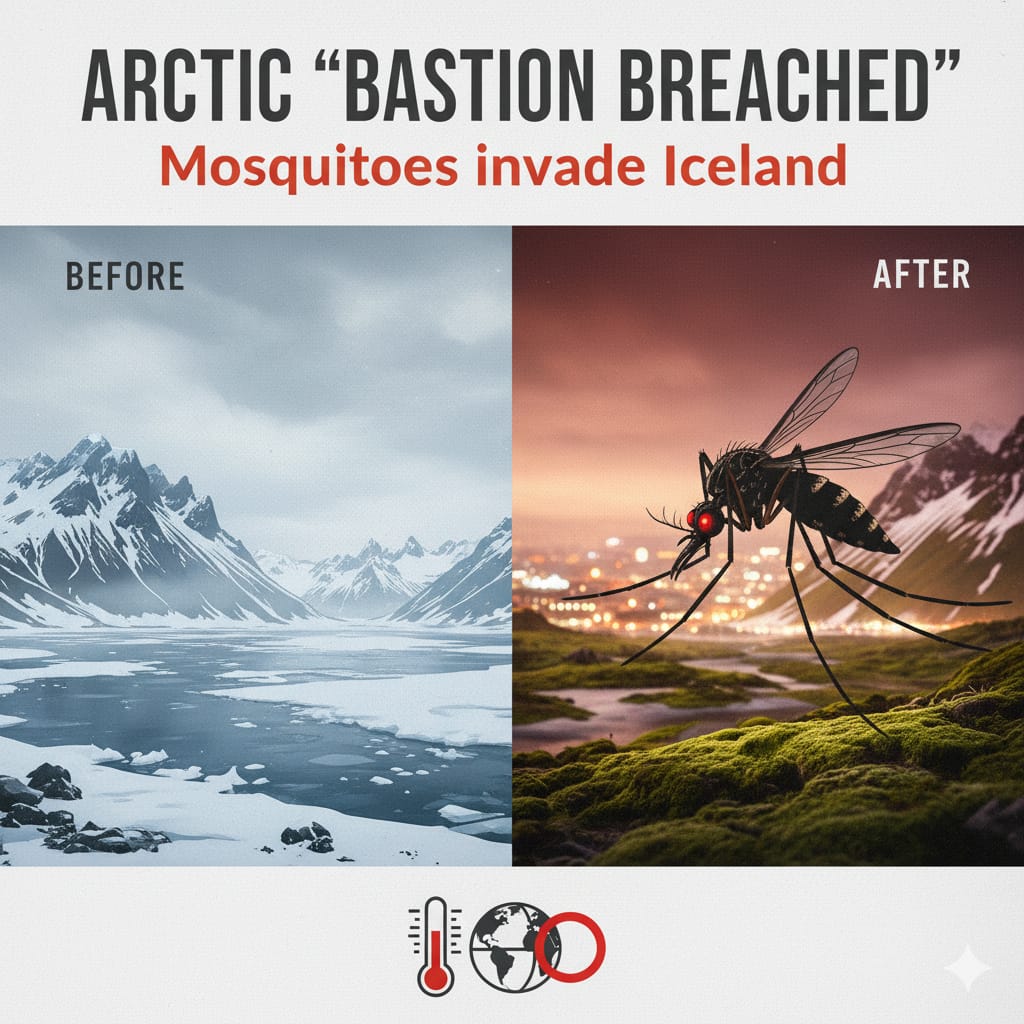
For the first time, mosquitoes have been discovered in Iceland, a Nordic island nation previously thought to be immune to these insects. This discovery, which involves the presence of Culiseta annulata specimens, has been reported by entomologists and is seen as a tangible and worrying consequence of the climate crisis. The finding triggers significant discussion about the escalating impact of global heating, even in geographically isolated and cold regions.
First-Ever Confirmed Discovery
The presence of the mosquitoes was confirmed after a report by a citizen scientist. Mathias Alfreðsson, an entomologist at the Natural Science Institute of Iceland, investigated the findings. He identified three specimens of Culiseta annulata: two females and one male. Culiseta annulata is a type of mosquito commonly found across much of Europe. Alfreðsson noted that the insects were likely attracted to a bait of wine ropes and were sighted around Kloftafl, Kjos, approximately 30 kilometres north of the capital, Reykjavik.
The discovery challenges Iceland's long-held status as a nation free from mosquitoes, a distinction often attributed to its volatile climate, which historically featured long, harsh winters and periods of rapid freezing and thawing that prevented the establishment of stable breeding habitats.
Climate Change as the Culprit
Entomologists and scientists are connecting the discovery directly to global warming. The overall increase in the global temperature, particularly the significant heating in the Atlantic Ocean and the North Atlantic region, is believed to be creating more hospitable environments for species like mosquitoes.
Alfreðsson explained that while the exact source of the specimens isn't definitively known, they could have arrived in the country either by natural migration, possibly from neighboring countries like Scotland, or, as a previous news report suggested, via an airplane landing at Keflavík airport. However, the fact that two female and one male specimen were collected, all of which were attracted by bait, strongly suggests the potential for a small, established or establishing population.
The research highlights that temperatures in the country have been rising at a rate four times the global average, leading to collapsing glaciers and warming seas. These environmental shifts, which have also attracted new fish species like mackerel to Icelandic waters, are clearly altering the nation's fragile ecosystem.
Implications and Future Outlook
The introduction of mosquitoes presents a new ecological challenge for Iceland. While the immediate focus is on the establishment of breeding habitats, the potential for these insects to become vectors for diseases cannot be ignored. The presence of these insects is, according to scientists, a clear signal that global heating is making the region more hospital for these new arrivals.
The finding underscores that even cold, isolated environments are no longer the "bastions" they once were against the biological changes driven by rising global temperatures. Scientists remain vigilant, emphasizing the need for continued monitoring and research to understand the full implications of this unexpected biological arrival.





















